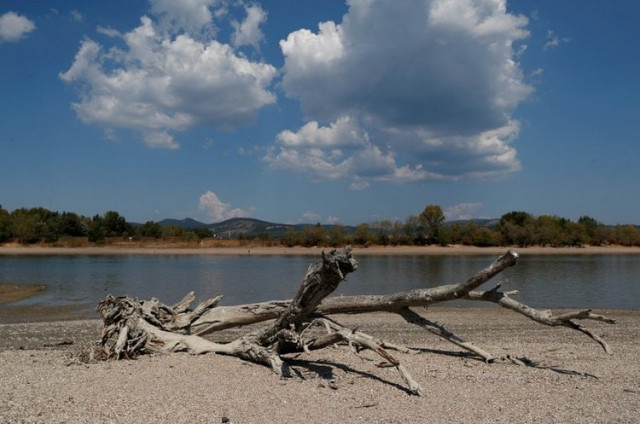Water levels drop by 30% in Indus Basin
PM’s adviser stresses need of better early warning systems for farmers

A representational image. PHOTO: REUTERS
The decrease is likely to affect both hydropower generation and food security and impact Pakistan’s GDP according to experts on a panel organised to present integrated community-centric models of early warning systems.
Experts further suggested farmers will need information on how to diversify their crops and how much water is available in the years to come
“This study of the Indus Basin is relevant to us and we welcome the research. We are going to start pilot projects on the ground that will focus on climate resilient agriculture,” said Adviser to the PM on Climate Change, Malik Amin Aslam who was invited to be on the panel to discuss Pakistan’s food-energy-water security challenges and adaptation to climate change.
“We are one of the ‘continuous affectees’ of climate change since the last 20 years and we are fourth in terms of the number of climate triggered events and second in terms of the total climate losses amounting to as much as $3,826 million,” the adviser informed the panel, adding this means a heavy strain on the country’s economy is money being diverted from health and education to be spent on climate related disasters.
Aslam further said Pakistan receives a lot of water as it is at the base of the third pole with glaciers on top. “However, only 9% of the water is saved and climate change will compound the loss further.”
The adviser also said the Pakistan Tehreek-e-Insaf (PTI) government would be shifting to renewable energy and investing in wind and solar energy. “We need better early warning systems for farmers,” he pointed out.
Earlier at an event organised by the WWF-International on national adaptation plans, the climate change adviser spoke of an innovative project that will use floodwater to restore ecosystems in Pakistan. The project, which will be implemented with the help of WWF-Pakistan, will restore wetlands and recharge groundwater.
“We currently have a million tube-wells sucking out all the water in the country. We hope to get funding from the Green Climate Fund and this project is one of our government’s priorities,” he said, adding that a similar project on the Yangtze River in China is saving a vast amount of water.
He added the WWF had been a good partner for Pakistan as they had also audited the “Billion Tree Tsunami Afforestation Project” (BTTAP), making it the first time a government project had been independently audited.
The BTTAP was registered under the international Bonn Challenge and was the first sub-national entity to achieve its targets of afforestation. “We didn’t think we could achieve the one billion tree target, but found that with the help of local communities and the assisted natural regeneration of forests in Khyber-Pakhtunkhwa (K-P) was a big factor as nature helped us.
“When you work with nature, it gives you a solution,” said Aslam, adding that the PTI government is now planning the nationwide 10 billion tree project.



















COMMENTS
Comments are moderated and generally will be posted if they are on-topic and not abusive.
For more information, please see our Comments FAQ